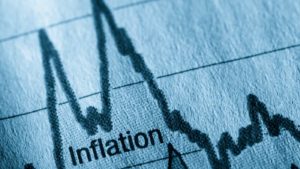A stock might be deemed oversold when it has been sold extensively to the point where its price has fallen to a level that suggests it is undervalued or too low compared to its intrinsic value or compared to its expected future performance. Our free-site writers have gone hunting in the FTSE 350 for candidates!
CVS Group
What it does: CVS Group operates veterinary practices, veterinary diagnostic businesses, pet crematoria, and an online retail business
By Paul Summers. Holders of CVS Group (LSE: CVSG) are having a terrible time. As I type, shares in the veterinary services provider have almost halved in the last twelve months.
This sell-off makes some sense. The Competition and Markets Authority (CMA) is currently looking at whether pet parents are being overcharged. If this turns out to be the conclusion of the final report, CVS could face caps on prescription fees or even worse.
But with shares now trading at under 11 times forecast FY25 earnings I’m questioning whether the stock is oversold. Interestingly, analysts at Berenberg Bank seem to think so. They slapped a price target of 2,370p on the stock in May. That’s more than double where it currently stands.
Considering that the pet population keeps growing, I suspect this might become a great recovery play if the outcome of the CMA investigation isn’t quite as negative as feared.
Paul Summers has no position in CVS Group.
Legal & General
What it does: Legal & General Group is a financial services company selling insurance, pensions, annuities, investment funds and equity release plans to individuals and businesses in the UK and Europe.
By Harvey Jones. At first I was well chuffed with last year’s purchase of FTSE 100 insurer Legal & General Group (LSE: LGEN), thinking I’d grabbed a fabulous long-term buy and hold at a bargain price. When the share price climbed and the dividends started rolling in, I was happier still.
Then investors suddenly turned against it, and the shares are down 10% in three months. The L&G share price is down just 1.9% over one year but over three years the drop is almost 20%. It’s now trading at similar levels to a decade to go. I just don’t get it.
On 7 August, we learned first-half profits had climbed 1% percent to £849m. Okay, that’s hardly spectacular, but it did beat forecasts of £834m.
Investors get one of the highest yields on the FTSE 100, at 8.96%. Shareholder payouts look set to grow, too, with the board hiking interim dividends 5% last week.
I’m concerned that when interest rates are cut, this will hit annuity sales. However, the bulk annuity market offers an exciting new opportunity, and L&G is looking to spread it swings in the US. The sell-off has gone too far. When I have the cash, I’ll buy more before the shares recover. While I wait for the re-rating, I’ll admire my fabulous income stream.
Harvey Jones owns shares in Legal & General Group.
Prudential
What it does: Prudential is a global financial services company offering insurance, investment management, and retirement solutions across Asia and Africa.
By Ben McPoland. As I type, Prudential (LSE: PRU) stock is down around 36% in one year. This slide saw it recently hit a 12-year low!
Driving this sell-off has been the struggling economy in China, which was meant to represent a major growth opportunity for the FTSE 100 insurer. Instead, it is weighing heavily on investor sentiment and could hamper earnings growth in the near term.
While these concerns are legitimate, I think the selling has gone too far. The shares are dirt cheap, trading at just 8.4 times forecast earnings. And after the board hiked the dividend by 11% last year, there’s a 2.6% yield on offer. The payout this year is expected to grow by 7-9%.
Meanwhile, the company is in the process of buying back $2bn worth of its own shares. Executives and directors have also been buying shares recently, which is clearly a positive sign. The combination of a rising dividend and share repurchases signals capital strength to me.
Long term, I still believe the growth markets of Asia will support rising profits and dividends. I recently invested.
Ben McPoland owns shares in Prudential.
Schroders
What it does: Schroders is an asset management firm with over £750bn in assets under management. It operates in 38 countries.
By Charlie Keough. Many investors have been offloading their shares in asset manager Schroders (LSE: SDR) recently. The stock is down 21.1% in 2024 and 22.8% in the last 12 months.
That’s likely due to the choppy market conditions we’ve endured during that time. And while I’m expecting these to continue in the coming months, which is a risk to the Schroders share price, I think, for long-term investors, the stock could be one to consider buying.
We’ve now seen our first interest rate cut. In the years to come, we’ll see rates continue to come down. That should help Schroders as it’ll boost market sentiment. What’s more, I like Schroders for its strong brand recognition and large customer base.
Its shares also look decent value right now. They trade on 13.8 times earnings and 11.5 times forward earnings. Along with that, the stock has a chunky dividend yield of 6.4%, comfortably above the FTSE 100 average.
Charlie Keough does not own shares in Schroders.
This post was originally published on Motley Fool







